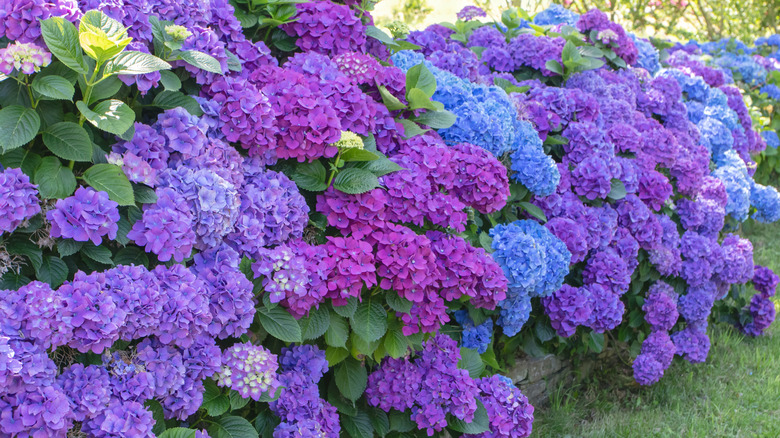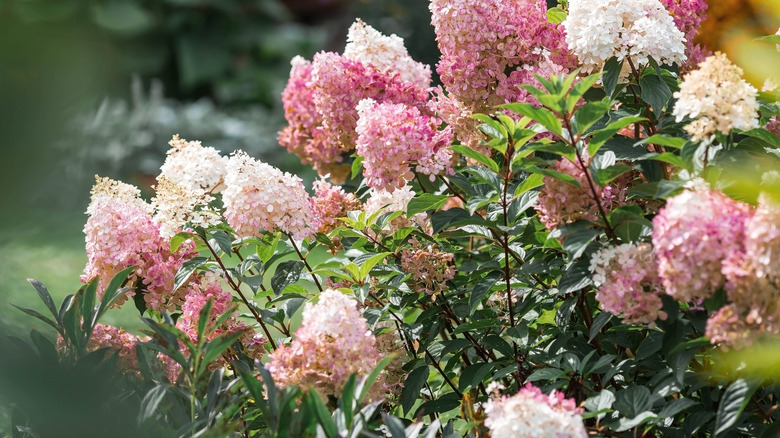The Best Time (And Way) To Fertilize Hydrangeas For Stunning Blooms
For big colorful blooms, there are few shrubs that can beat hydrangeas. This genus boasts some of the most jaw-dropping flowers around. To get the most out of your hydrangeas, however, they do benefit from some maintenance on occasion. In addition to regularly watering and knowing how to prune your hydrangeas, you should also provide them with fertilizer. The best time to fertilize your hydrangeas is during the spring and early summer.
Before fertilizing, it's always a good idea to test your soil. There are a few different species of hydrangeas, and which fertilizer you should use depends both on the health of your soil and the type of hydrangea you're growing. Bigleaf and mountain hydrangeas, which change color based on soil pH, benefit from acidic soil if you want them to be a bluish shade. You can accomplish this by using a fertilizer specifically designed for acid-loving plants and shrubs at least once a year. Most other hydrangea species do fine with just a standard balanced fertilizer. Whether you opt to fertilize your hydrangeas with Miracle-Gro or use a different brand, check that the packaging says 10-10-10 on it, as this means that it has equal percentages of nitrogen, phosphate, and potassium.
How to fertilize your hydrangeas
While you might assume that the more you fertilize your plants the bigger and better the blooms on your hydrangeas will be, that's not always the case. Hydrangeas often flower best if their soil isn't too rich. So limit yourself to adding relatively small amounts of slow-release fertilizer a few times over the spring and summer months in most cases. If you notice that the leaves on your hydrangea seem to be yellowing, you can always give your plant a faster acting fertilizer as needed.
When fertilizing your hydrangeas, make sure you are watering the fertilizer in well and are applying it to the soil around the plant – not onto the leaves or flowers of the plant itself. Granular fertilizer could actually burn your hydrangea's leaves otherwise. Similarly, you should be careful to avoid getting fertilizer on your own skin or in your eyes.

